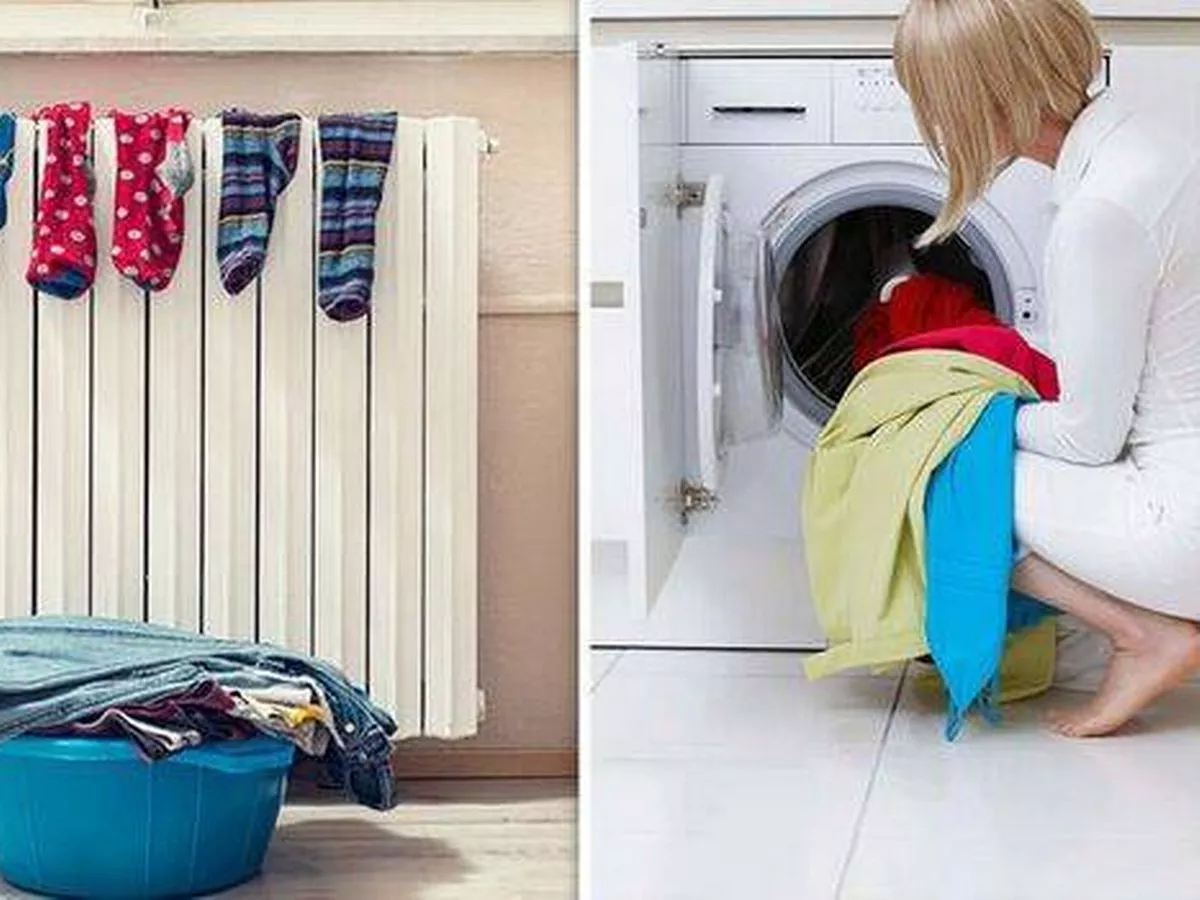By Rebecca Miller
Copyright belfastlive

Many households will be switching off their tumble dryers this winter in an attempt to cut down on their electricity bills amidst the energy crisis. Express.co.uk consulted heating and energy expert, Matthew Jenkins from My Job Quote about the most cost-effective ways to dry laundry. Matthew explained: “We often use a heated airer, a tumble dryer, or a radiator to dry clothes because the rainy weather in the UK prevents us from always hanging laundry out to dry. “Your boiler has to work harder than necessary while drying clothing on a radiator. “Moreover, your boiler must consume more energy (and money) to keep the entire room warm due to the garments’ potential to restrict heat from being emitted. “Furthermore, since more moisture is in the air, it requires more energy to heat the entire space.”, reports the Express . “It also might lead to a lot of condensation in your home, resulting in damp and mould issues.” He added: “In general, heated airers are less expensive to operate than tumble dryers and radiators to dry clothes.” “Some heated dryers can operate for as little as three to six pence per hour. “You would spend roughly 48p to dry the laundry if you assumed that a heated airer is left on for eight hours and factor in the higher amount. “Instead of a tumble dryer that runs at about 67p every time, you will consume around 4.5kWh of energy. “Although heated airers must be used for longer to dry garments completely, the operating expenses are still relatively inexpensive. “Additionally, more tumble dryer producers are attempting to make their machines more energy-efficient, so if you shop around, you can find models with lower operating expenses than other, more traditional versions.” When asked about using a heated airer instead of a tumble dryer for those who prefer not to pay the running costs, Matthew explained whether there were any advantages to drying clothes this way. He said: “One of the main advantages is that heated airers typically cost less to operate than tumble dryers. “You should be aware that contemporary tumble dryers are made to be more cost-effective. The amount of wattage a tumble dryer needs per hour affects how much a cycle costs to run, and they can dry clothes considerably quicker than a hot airer. “The fact that heated airers come in various sizes and weights allows you to select one that complements your washing preferences and home design. “If you use the bar on your heated airer wisely, you can dry a fair amount of laundry at once. “In addition, you can dry more with a larger airer, which saves electricity and drying time. For instance, larger heated airers can dry up to 15kg of clothing.” He went on: “Users adore heated airers since you can store them out of the way. “Whatever airer you purchase, it will be simple to pop it away and get it back out when you need it. “In addition, most heated airers fold practically in half when they are in their compact state, making them easy to store. This feature is quite useful if you don’t have much space in your home.” For those who opt to use a standard airer, Matthew shared how to reduce dampness in a property – particularly for anyone deciding to switch their heating off completely this autumn and winter. “It would help if you first increased airflow where you’ll be hanging the wet garments to prevent wetness while drying laundry,” he explained. “Position your clothes horse in a spot with excellent airflow, and for 15 minutes, leave a window or door open to boost ventilation. You can instantly enhance the ventilation in your home by allowing fresh air to circulate. “Consider investing in a dehumidifier if the temperature is too low for you. Also, consider opening the windows for a cool breeze. Removing extra moisture from the air will aid in hastening the drying of your clothing. “It is often tempting to let washing pile up and wash everything at once to save time, but overloading a washing machine can make the clothing wetter after the cycle is complete, making drying time longer and increasing the amount of moisture in the air. “Similarly, spacing out your washing loads can help keep your garments from smelling musty. When clothing sits on a clothes horse overloaded for an extended period to dry, they frequently start to smell wet. Your laundry will dry faster and won’t smell as bad if you spread the clothes out,” he added. For all the latest news, visit the Belfast Live homepage here and sign up to our daily newsletter here.



